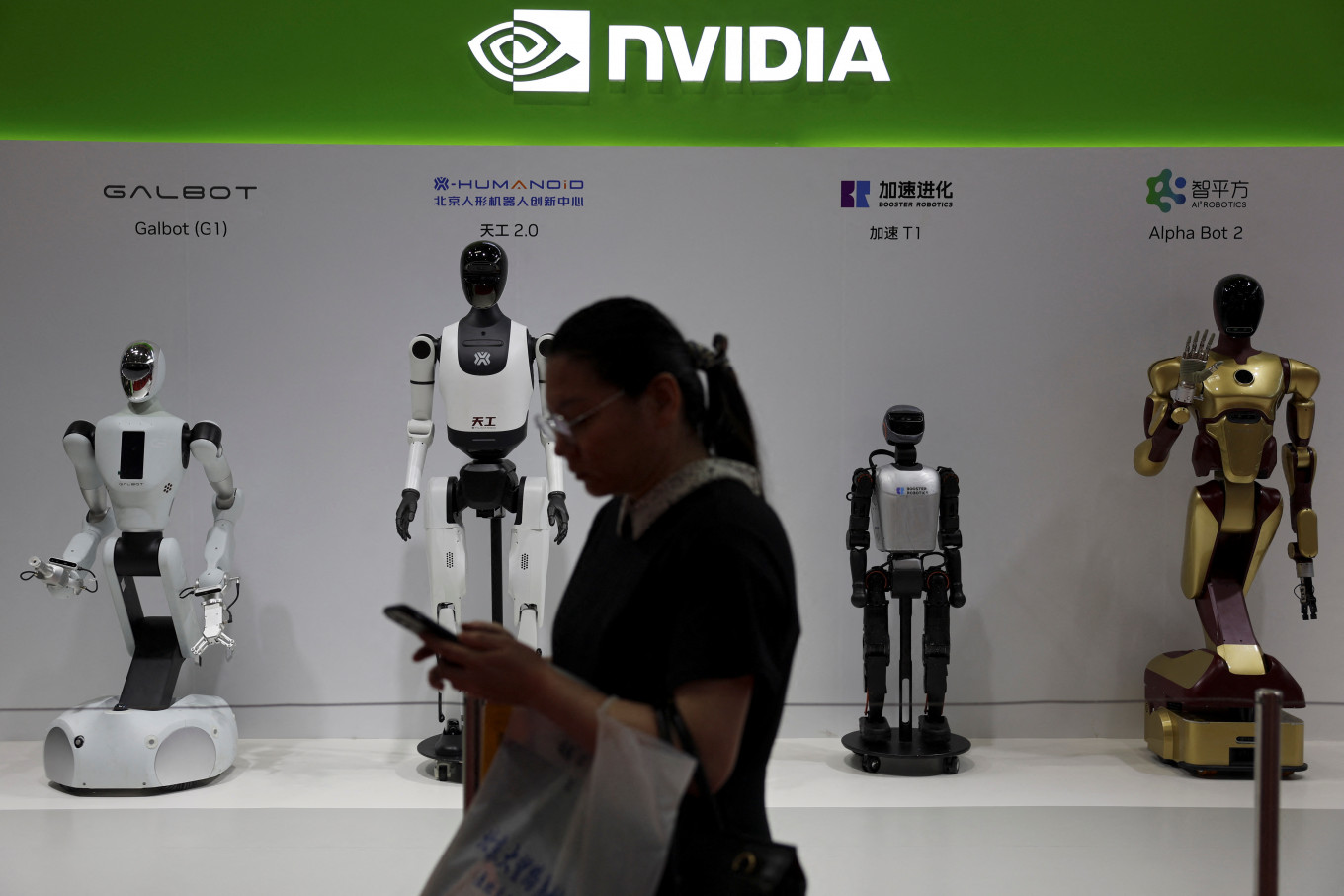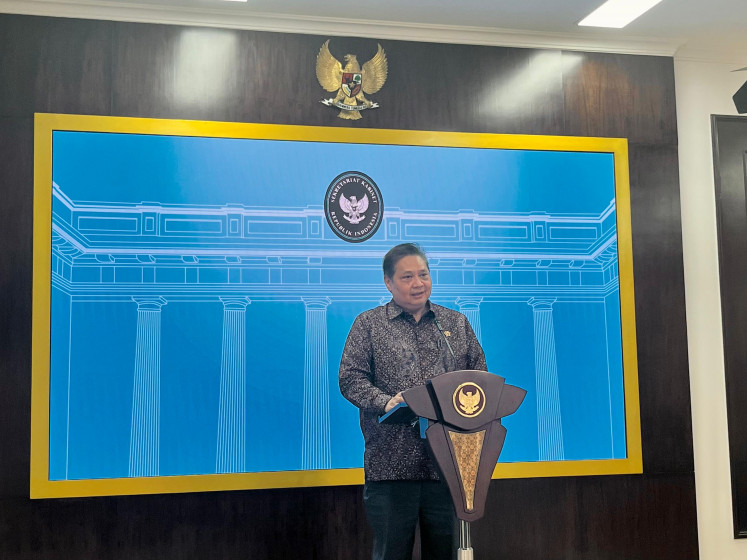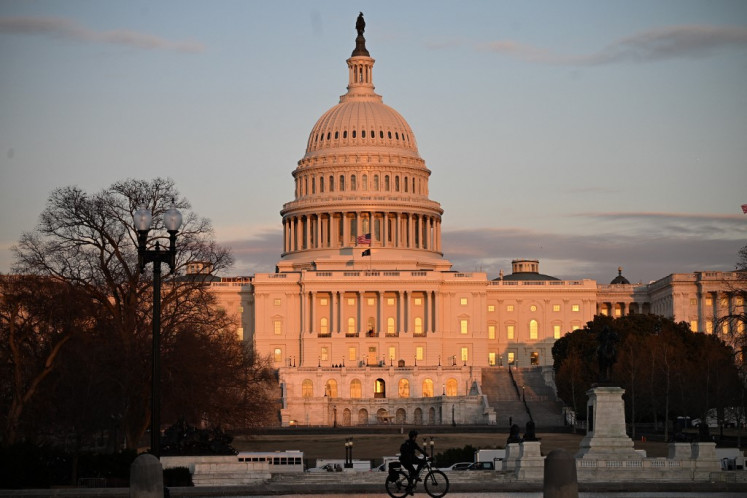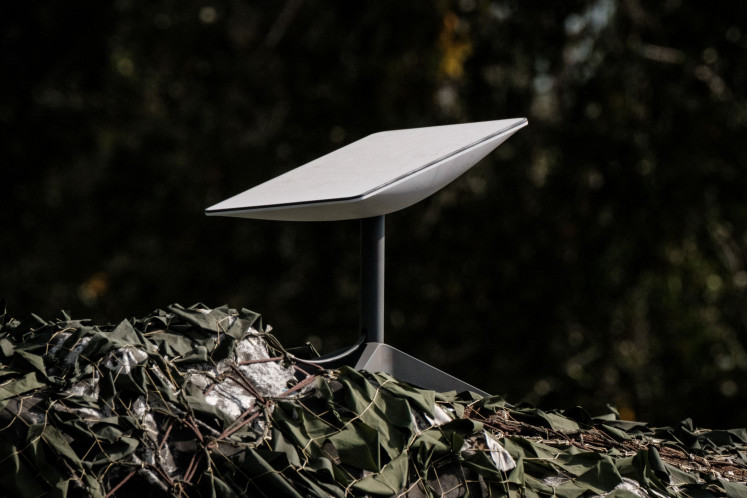Popular Reads
Top Results
Can't find what you're looking for?
View all search resultsPopular Reads
Top Results
Can't find what you're looking for?
View all search resultsChina flags concerns over potential security risks in Nvidia's H20 chips
Change text size
Gift Premium Articles
to Anyone
C
hina raised concerns over potential security risks in Nvidia's H20 artificial intelligence chip, casting uncertainty over the US company's sales prospects in China weeks after a US export ban was reversed.
The Cyberspace Administration of China, the country's internet regulator, said it was concerned by a US proposal for advanced chips sold abroad to be equipped with tracking and positioning functions.
It said it had summoned Nvidia to a meeting on Thursday to explain whether its H20 AI chip had any backdoor security risks, as it was worried that Chinese user data and privacy rights could be affected.
Nvidia did not immediately respond to a Reuters' request for comment.
In May, US senator Tom Cotton introduced a bill that would direct the Commerce Department to require location verification mechanisms for AI chips subject to export restrictions, to curb Chinese access to advanced US semiconductor technology.
Nvidia has been in the crosshairs of US-China relations, and China's move comes shortly after the US this month reversed an April ban on Nvidia selling the H20 chip to China. The company developed the H20 chip for the Chinese market after the US imposed export restrictions on advanced AI chips in late 2023.
Last month, Nvidia CEO Jensen Huang embarked on a very public and effusive visit to China where he sought to demonstrate his commitment to the Chinese market, met with government officials and praised the country's AI advances.
The CAC statement did not elaborate on what backdoor security risks there could be or say what the Chinese government was considering to do as a result.
Nvidia's products are highly sought after not just by Chinese tech companies but also by Chinese military bodies, state-run AI research institutes and universities. The company placed an order for 300,000 H20 chipsets last week due to strong demand, Reuters reported.
Chinese authorities and industry associations have in the past accused US tech companies of posing security risks, with varying consequences.
In early 2023, China barred key operators of the country's infrastructure from purchasing from Micron, saying that a review it conducted had found that the US memory chip maker's products posed serious security risks.
Last year, an industry group, the Cybersecurity Association of China, called for Intel products sold in China to be subject to a security review, but Chinese regulators have not publicly responded.
Nvidia is also facing an antitrust investigation in China. The State Administration for Market Regulation announced late last year it was investigating the chipmaker over suspected violations of the country's anti-monopoly law.
The regulator said Nvidia was also suspected of violating commitments it made during its acquisition of Israeli chip designer Mellanox Technologies, under terms outlined in the regulator's 2020 conditional approval of that deal.











